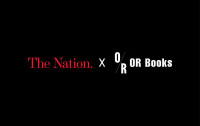firstwriter.com's database of publishers includes details of 2,762 English language publishers that don't charge authors any fees for publishing their books. The database is continually updated: there have been 49 listings added or updated in the last month, and the database was last updated about 10 hours ago. With over a dozen different ways to narrow your search you can find the right publisher for your book, fast.
News

TikTok parent ByteDance’s book publisher 8th Note Press is closing up shop, according to a report from The Bookseller.
Through its #BookTok community, TikTok has become an irreplaceable engine for publishers to drive book sales; even self-published authors have found unprecedented success by capturing a viral moment on TikTok. ByteDance took the next logical step in 2023, figuring that if the app was revolutionizing book sales, then it may as well cash in on selling its own books.
Romance and fantasy categories of books in the UK saw record sales last year, according to data gathered from more than 7,000 UK booksellers. Romance & Sagas, as they are officially categorized, increased from £62m in 2023 to £69m in 2024, while Science Fiction & Fantasy saw an even bigger bump – from £59m to £83m, the BBC reports. Both categories have seen these numbers skyrocket since the pandemic, growing year-on-year – back in 2019, romance’s sales sat at £24m, and fantasy at £29m.
We at Authorlink found a parallel boom in the US romance and fantasy markets, driven by the same cultural forces. While the reporting metrics differ—the UK often reports sales value (£) while the US tracks unit sales—the trends are strikingly similar.
Women under 35 years old make up more than half of romantasy purchases, figures show.
Literary agent Rebeka Finch, 28, told the BBC the “voracious” appetite among this demographic, largely driven by BookTok, reflects broader consumer habits. She likens romance readers to Swifties – Taylor Swift fans – known for owning multiple copies of the same album and wanting to feel a tangible connection to their favorite artist.

Income from audiobooks reached a record £268m in 2024, according to figures from the Publishers Association
Whether it’s plugging in to Benedict Cumberbatch reading Austen while doing the washing up or listening to Meryl Streep narrate Nora Ephron’s Heartburn on the way to work, the UK is increasingly getting into audiobooks.
Audiobook revenue generated by UK publishers rose by 31% between 2023 and 2024, with income from audiobooks reaching a record £268m last year, according to the Publishers Association (PA), the body representing UK publishers.
“We’re seeing a real demand for audiobooks given the unique way they fit into our increasingly busy lives,” said Debbie Hicks, creative director at The Reading Agency charity. “Audiobooks make reading more accessible, whether that’s for people with dyslexia or visual impairments, or simply those who struggle to find time to sit down with a traditional book.”
Many listeners value “the ability to multitask” that comes with audiobooks, added Hicks. “You can listen to audiobooks while commuting, exercising or doing chores. For young adults especially, audiobooks are a natural fit with how they live and read.”
Audiobooks have “soared in popularity over the past 10 years”, said Dan Conway, chief executive at the PA. “The same is true of podcasts, so clearly audio content in general is hugely on the rise.”

The partnership with OR Books brings the magazine’s indispensable voice and rich roster of talent to a longform format.
New York, NY—The Nation, America’s leading source of progressive politics and culture, together with OR Books, today announced that they are joining forces in a new book publishing imprint: Nation Books. Launching this fall, the imprint, which will be distributed by OR, will release four to six titles a year with new, younger Nation writers complementing more established voices from the magazine’s rich roster.
Katrina vanden Heuvel, publisher and editorial director of The Nation, welcomed the initiative: “At this perilous moment, The Nation’s indispensable voice and legacy has never been more essential. Our partnership with OR is a great opportunity to deepen the reach and impact of The Nation’s most exciting writers and thinkers, past and present—and inspire a new generation.”
Colin Robinson, publisher at OR, adds: “The first book we published when we started OR was a searing anthology by Nation editors and writers about Sarah Palin, which went on to the New York Times bestseller list. With plentiful new targets, we are very much looking forward to repeating that experience, drawing on the terrific journalists at a superb progressive magazine.”
On Tuesday, June 17, they will celebrate the launch of the new collaboration with a conversation between vanden Heuvel and Ross Barkan, a frequent contributor to The Nation and the author of CUOMO, published by OR Books, at The Francis Kite Club in New York City.
Articles

Traditional book publishers. They were once known as the titans of the book publishing industry. In the Baby Boomer era, self-publishing was an unknown concept. You needed a traditional publisher if you wanted the best chance to succeed with your book.
During that time, there was significantly less competition for publishers and authors, meaning more book sales for both parties.
Over time, traditional publishers (especially The Big 5) gradually started to exploit authors by offering lower royalties and seizing the author’s publishing rights.
Signing a contract with even a brand-name traditional book publisher initially feels like a ticket to Nirvana. You may expect, for example, your new publisher to set you up with a big fat advance, a multi-city promotional tour, your very own personal PR rep and multiple copies of your book on every bookshelf in the nation (and Canada) for as long as you and your book shall live.
But to understand how book publishers really work, study this list of what I call the four great “myths” of traditional book publishing. Then, by all means, proceed to seek out a publisher if that’s your goal but do so with your eyes wide open. Your relationship with your publisher will run much smoother if you recognize its pitfalls as well as its glories.

Several years ago, as an aspiring novelist with stardust in my eyes, I used to spend most of my waking hours in Yahoo’s Books and Literature chatroom in the company of fellow aspiring writers. I clearly remember how one of the main topics of conversations used to be the number of rejection slips one had received on that particular day (or the previous week), agents/publishers who had requested a synopsis or proposal, and those who had just not bothered to respond. All of us were united by the looming sense of uncertainty, suspense, and the palpable realisation that the odds were firmly stacked against us.
Today, having spent more than seven years on the other side, first as a consultant and then an agent, I think many writers have wrong notions about rejections. While most books are rejected because of poor quality and incompetence (as they should be), there are several other factors that play a role in publishing decisions. And these affect “good” books too.

In 2021 author, poet and teacher Kate Clanchy gained an unwelcome new accolade: the award for the most liberal target of a cancellation yet. Clanchy’s much-celebrated Some Kids I Taught and What They Taught Me, about her experiences of teaching poetry to disadvantaged children around the UK, won the Orwell Prize in 2020. But a year later, thanks to a handful of the book’s sentences being shared out of context on social media, she found herself publicly shamed by today’s self-appointed moral guardians. She went from being applauded for bringing poetry to working-class children to being humiliated into accepting sensitivity-reader approved rewrites of her work.
It might be a new year but Clanchy’s punishment beating continues. It was announced last week that plans for a woke rewrite of Some Kids I Taught had been dropped – not because it was a God-awful idea to begin with, but because Clanchy and her publisher, Pan Macmillan, have decided to part company ‘by mutual agreement’.
The publisher’s statement notes: ‘Pan Macmillan will not publish new titles nor any updated editions from Kate Clanchy, and will revert the rights and cease distribution of Some Kids I Taught and What They Taught Me and her other works.’ This is an astonishing attempt by a publishing company to distance themselves from an author and her work.
Submit a listing
If you run, are involved in, or just know of a publisher not included in our publishers database, you can suggest a new listing by clicking here. You can also use this form for suggesting amendments to existing listings.
To view our inclusion policy, click here.





